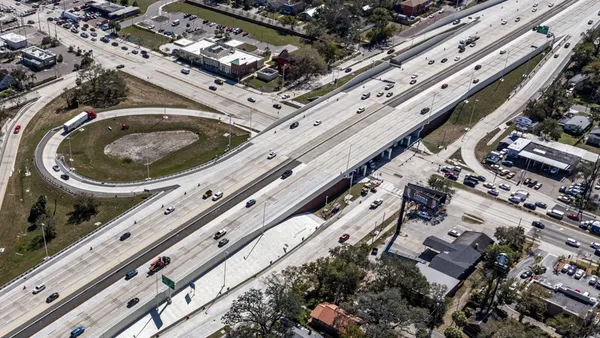Dive Brief:
- San Jose, California-based electrical contractor Rosendin claims it has made a major breakthrough in solar construction technology and will demonstrate a new autonomous robotic solution for photovoltaic installation, according to a news release.
- Rosendin’s Renewable Energy Group will host the live exhibition of the tech — a 3-piece robotic system made of two panel-carrying robots and one panel-setting bot — at a large-scale solar energy project under construction in West Texas on April 17, according to the release.
- Operators will demonstrate the robot’s features, which include autonomous operations, obstacle detection and avoidance using LiDar, maneuverability across uneven terrain and precise positioning of PV panels within 2mm using GPS and KMZ mapping, per the release.
Dive Insight:
A real-time demonstration will show how skilled electrical teams work alongside the robotic system, collaboratively installing PV panels more quickly, safely and efficiently.
Rosendin said that the robots will triple installation speeds, enhance worker safety and address the industry’s persistent labor shortage, particularly as commercial solar panels can measure 4 feet by 8 feet and weigh between 80-100 pounds, per a Rosendin information packet detailing the robots.
“We created a solution that will revolutionize the installation of renewable energy facilities worldwide by providing a safer, faster, repeatable, and more cost-effective means of deploying solar installations in remote locations,” said David Lincoln, Rosendin senior vice president, in the release.
On a solar project in Danevang, Texas, the robots achieved an installation rate equaling 350-400 modules per eight-hour shift, alongside a two-man crew working collaboratively with the robots. This installation rate was three times the rate of a standard three- to four-person crew installing modules manually, per the news release.
This isn’t the first time robotic technology has been tested on a solar project — in March 2023, Minneapolis-based Mortenson hosted a field trial for Salt Lake City, Utah-based Palladyne AI, then known as Sarcos Technology and Robotics, on one of its jobsites.














